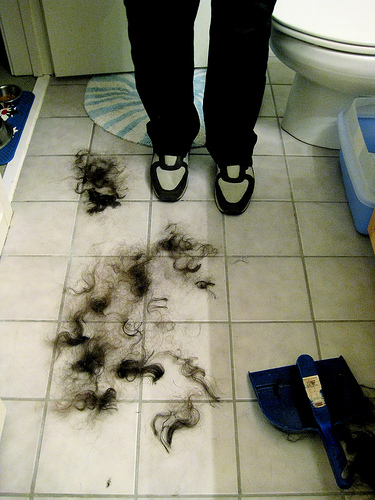 When I took Kathy to my meet my parents, Dad got out his boarding-school yearbooks. He’d never done such a thing, shown anyone the elegant 1930s volumes—certainly never to one of my girlfriends. I suppose her work as an educator made his sharing of that lost world relevant, but he also was showing a pretty young woman the smoldering dreamboat he’d been. His pilot’s career had taken him from Michigan’s snows to coral atolls in the glittering Pacific to the firebombed ruins of Tokyo and finally to Florida’s unruly interior.
When I took Kathy to my meet my parents, Dad got out his boarding-school yearbooks. He’d never done such a thing, shown anyone the elegant 1930s volumes—certainly never to one of my girlfriends. I suppose her work as an educator made his sharing of that lost world relevant, but he also was showing a pretty young woman the smoldering dreamboat he’d been. His pilot’s career had taken him from Michigan’s snows to coral atolls in the glittering Pacific to the firebombed ruins of Tokyo and finally to Florida’s unruly interior.
I think Dad sensed more about Kathy than their short acquaintance would suggest. His sense of her happened in the way we know some people at once, or presume we do, how we see in their countenance what we admire and need. Perhaps he saw her strength. Kathy had launched herself into the world almost as fiercely as he had. She didn’t share my fear—of drifting rootless, alone and unknown—but must have had his terror: of being trapped, unable to take off for the horizon. Growing up, a willful child, she’d run away from home, angry—or not. She was searching for something. Her mother sometimes saw, from a window, Kathy receding: the diapered girl disappearing across a soybean field.
“Jim,” Mary said to the oldest, “go get Kathy.”
He ran, swooped her up. She kicked, but giggled too.
Years later, she was cute but odd. To appearances another tanned farm girl who played in the mud, Kathy was eccentric, a birthright that ascended with age. When she was ten her mother cut her hair short, and Kathy clamped a sailor’s cap atop her head. That summer, a pet duck loved her; Huey’s trust shined from his leaden blue eyes. She carried the white drake around, which he tolerated, and dropped him in a wading pool, which he polluted. Although the family was busy farming, the duck and that useless circular hat got noticed. Something about the combination unsettled. Kathy was the only one of his five daughters Karl routinely punished physically, the only child who defied him. Like him, she was bullheaded.
Beside the barn Karl built a clapboard shed—Krendl Produce Market—and, when sweet corn ripened, cars crunched into the gray gravel driveway off Route 66. The beaming Krendl girls stuffed paper sacks with ears of Silver Queen: sixty cents a dozen, and they threw in extra. They were saving for colleges far away. “I’ll buy your books,” one customer always said. Kathy did all the plowing, disking, and cultivating. She protested, since she wasn’t paid extra, and Karl said, “You want to go to college don’t you?” He didn’t teach her how to turn off the tractor, so she ran it dry. Once he ordered her to fetch a bulldozer from a field a mile away; the machine tipped in a rut on the sloping canal towpath and spilled battery acid on her foot. She ran down to the water and rinsed, then guided the Caterpillar home, gripping its steering levers. Running heavy machinery damaged her hearing.
Right before her high school senior photo, Kathy took her mother’s sewing scissors and sawed off her long brown hair—it was hot on her neck in the fields. Mary, mortified, begged the photographer to do something, and he dabbed brown paint on the picture. The yearbook showed a girl wearing horn-rimmed eyeglasses and an uneven pageboy that looked like Joan of Arc’s dented helmet. A layer of baby fat still softened her cheeks, but her composed smile—a young intellectual’s nod to the world—wasn’t warm enough to distract a viewer from the intense inquiry in her eyes.
When Dad met us at the Orlando airport on that first visit he spotted me at the top of the stairs exiting the airplane. “She’s Type A,” he said approvingly as we got our luggage. He was invoking his own temperament, self-diagnosed from readingType A Behavior and Your Heart. The bestseller described hard-chargers who got a lot done, defying the indifference of the world, but who suffered from their own impatience and anger.
He’d seen Kathy looking for him, her brow furrowed, searching the crowd for a man she’d never met.
—
Richard Gilbert, a former newspaperman and book publisher, earned an MFA in creative nonfiction from Goucher College, has taught writing at Ohio University, and in Fall 2009 begins work as Lecturer in English and Journalism at Otterbein College. His writing has appeared in Orion, Memoir (and), SNReview, and Farming: People, Land, Community. His essays are forthcoming in Chautauqua and Fourth Genre. “Kathy” is adapted from his memoir of farming and Appalachia. He writes a blog, Narrative, for writers, teachers, and students of narrative and artistic nonfiction.
photo by Sarah Truckey
